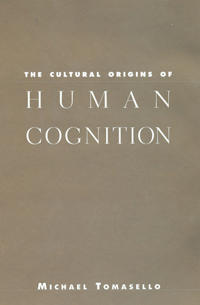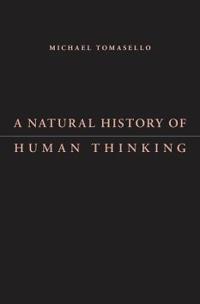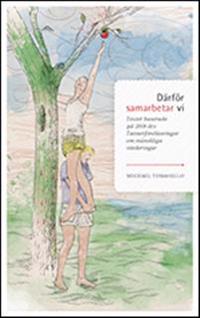Primate Cognition (Pocket)
avMichael Tomasello, Josep Call
ISBN: 9780195106244 - UTGIVEN: 1997-07-01Why We Cooperate (Inbunden)
avMichael Tomasello
ISBN: 9780262013598 - UTGIVEN: 200910Drop something in front of a two-year-old, and she's likely to pick it up for you. This is not a learned behavior, psychologist Michael Tomasello argues. Through observations of young children in experiments he himself has designed, Tomasello shows that children are naturally--and uniquely--cooperat[...]
Origins of Human Communication (Häftad)
avMichael Tomasello
ISBN: 9780262515207 - UTGIVEN: 201009Human communication is grounded in fundamentally cooperative, even shared, intentions. In this original and provocative account of the evolutionary origins of human communication, Michael Tomasello connects the fundamentally cooperative structure of human communication (initially discovered by Paul [...]
The Cultural Origins of Human Cognition (Häftad)
avMichael Tomasello
ISBN: 9780674005822 - UTGIVEN: 200105This work builds a bridge between evolutionary theory and cultural psychology. The author is one of very few people to have done systematic research on the cognitive capacities of both nonhuman primates and human children. This work identifies what the differences are, and suggests where they might [...]
Constructing A Language (Häftad)
avMichael Tomasello
ISBN: 9780674017641 - UTGIVEN: 200503Drawing together a vast body of empirical research in cognitive science, linguistics, and developmental psychology, Michael Tomasello demonstrates that we don't need a self-contained "language instinct" to explain how children learn language. Their linguistic ability is interwoven with other cogniti[...]
A Natural History of Human Thinking (Inbunden)
avMichael Tomasello
ISBN: 9780674724778 - UTGIVEN: 2014-02Tool-making or culture, language or religious belief: ever since Darwin, thinkers have struggled to identify what fundamentally differentiates human beings from other animals. In this much-anticipated book, Michael Tomasello weaves his twenty years of comparative studies of humans and great apes int[...]
The Emergence of Social Cognition in Three Young Chimpanzees (Häftad)
avMichael Tomasello, Malinda Carpenter
ISBN: 9781405147262 - UTGIVEN: 2005-03-31Därför samarbetar vi (Häftad)
avMichael Tomasello
ISBN: 9789171733474 - UTGIVEN: 201110Vi har lätt att uppfatta små barn som självcentrerade varelser, men i själva verket är de påfallande samarbetsvilliga. Tvååringar har betydligt lättare att sinsemellan dela upp någonting åtråvärt ? några bananer, till exempel ? än vad schimpanser har. Det är alltså inte enbart vårt[...]










